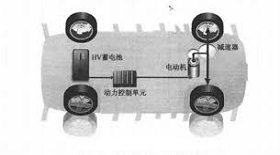The basic requirements of electric drive system for battery
1. High energy density. Any electric drive device wants to choose batteries with large capacity, light weight and small size. This is because the batteries that meet these conditions can make the electric drive device look small, light and travel a long distance after charging. Li-ion battery has high energy density and is the preferred power source for electric vehicles.
2. High power density. The vehicle starting and accelerating process is expected to be short. The battery's instantaneous output current must be very large, and the battery with high power density can meet this requirement. The battery's plate is thin, internal resistance small, and large current discharge performance is good. It should be noted that the relation between specific energy and specific power of different batteries is different. Some batteries have higher specific energy but not are necessarily higher specific power. Similarly, some batteries have higher specific power but are not necessarily higher specific energy.
3. The cost/efficiency ratio is as low as possible. The price of any product is often the key factor to capture the market. The product will sell only if the consumer thinks the cost/benefit ratio is appropriate. Currently more than 95% of electric bikes use valve-operated sealed lead-acid batteries because of their obvious cost/efficiency advantages.
4. Short charging time. The shorter the battery charging time, the higher the motor performance of the vehicle. Electric car drivers want batteries to be recharged as quickly and easily as gasoline cars can be refilled.
5. Good security. The battery is made up of high negative electrode and high positive electrode. But at the same time, there is a problem of poor safety. For example, the specific energy of Li/SOCI2 battery is high, but it fails to be used as the power battery because of the mysterious explosion phenomenon.



